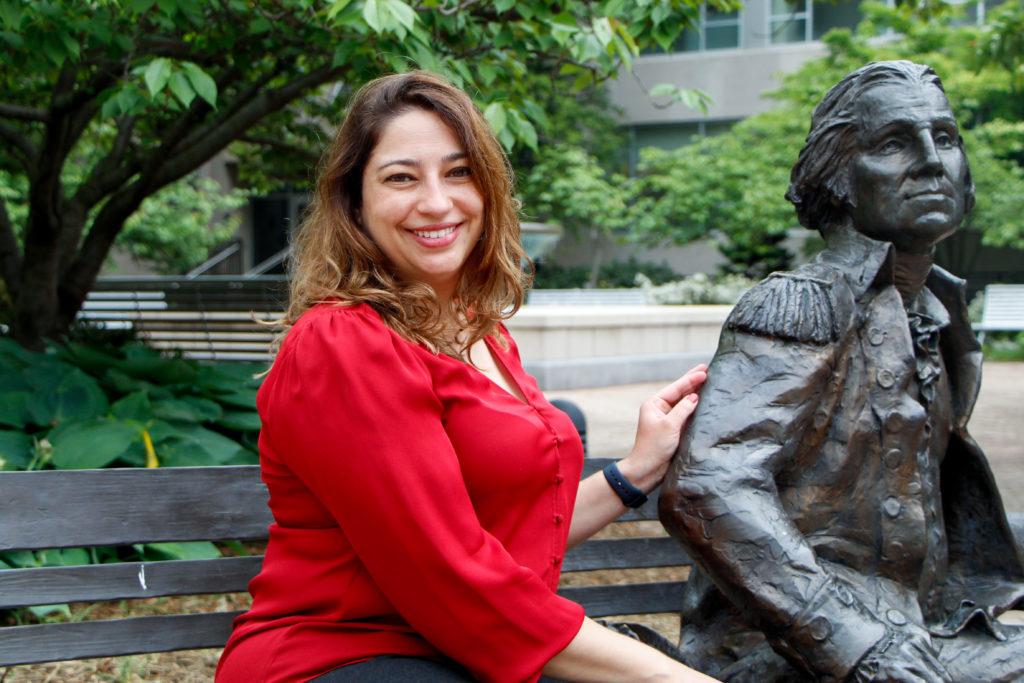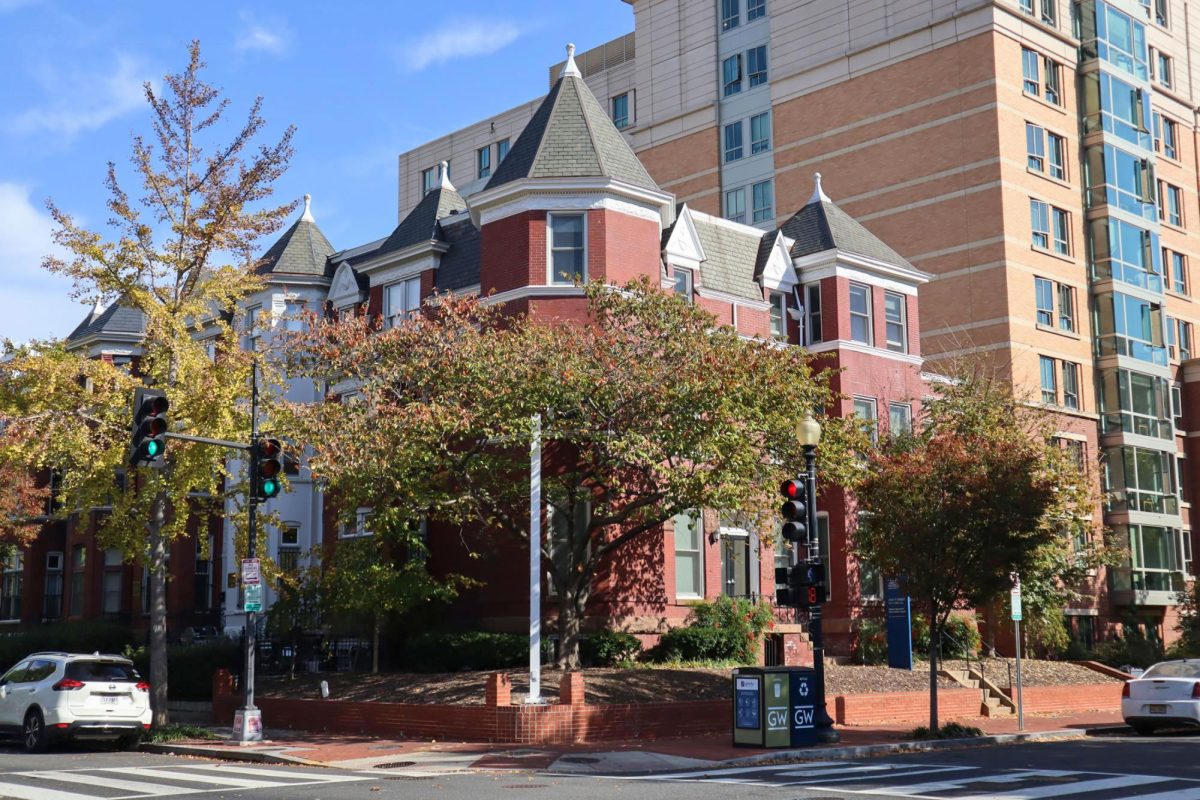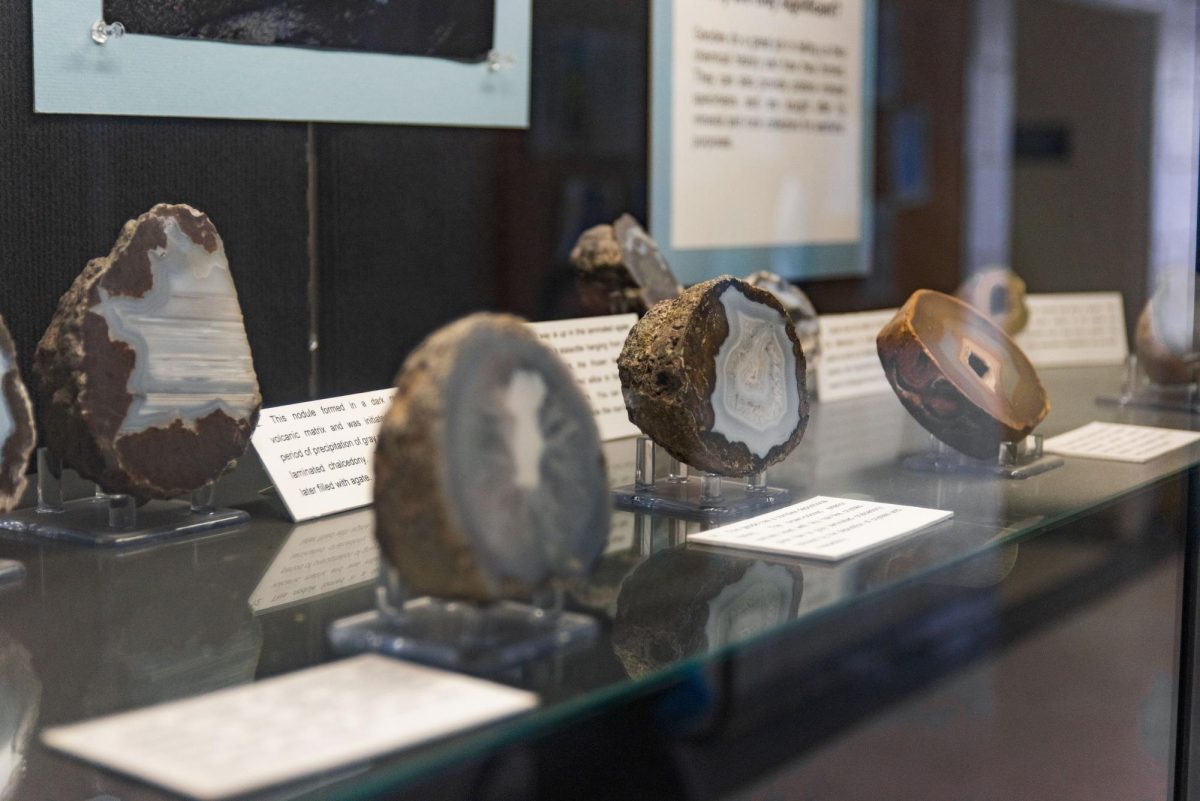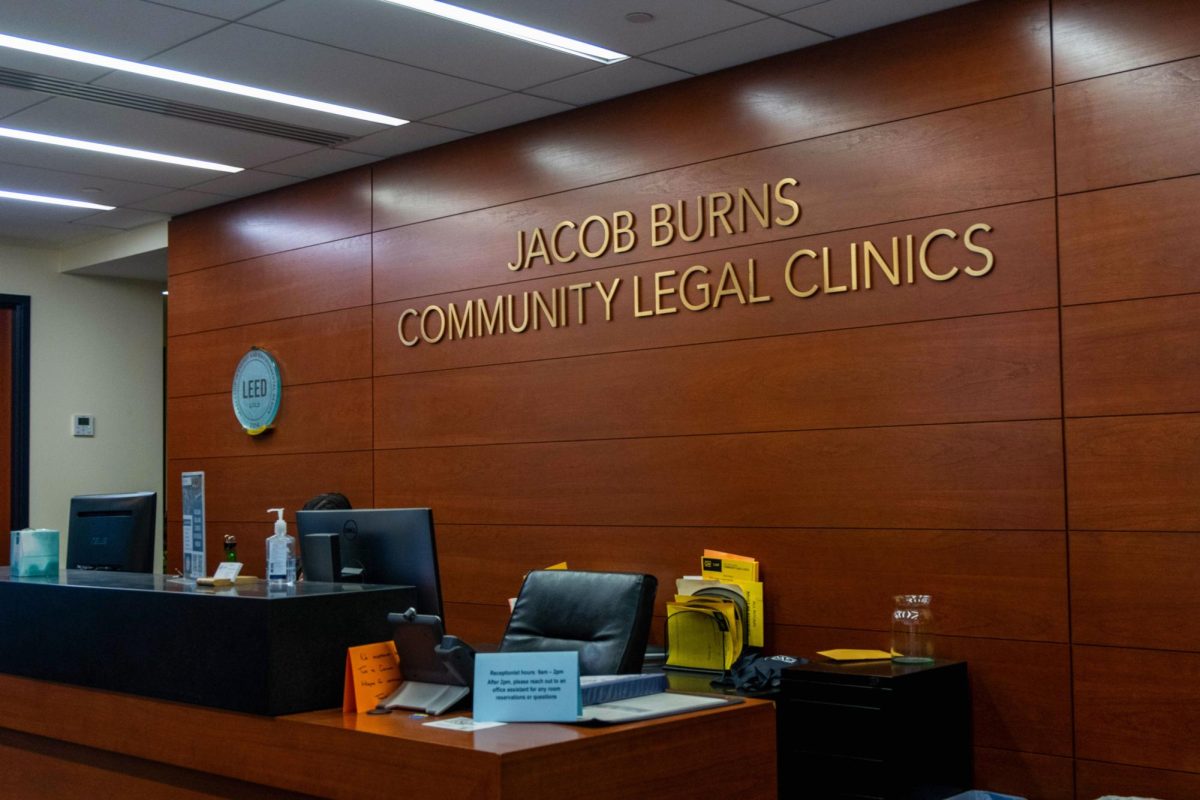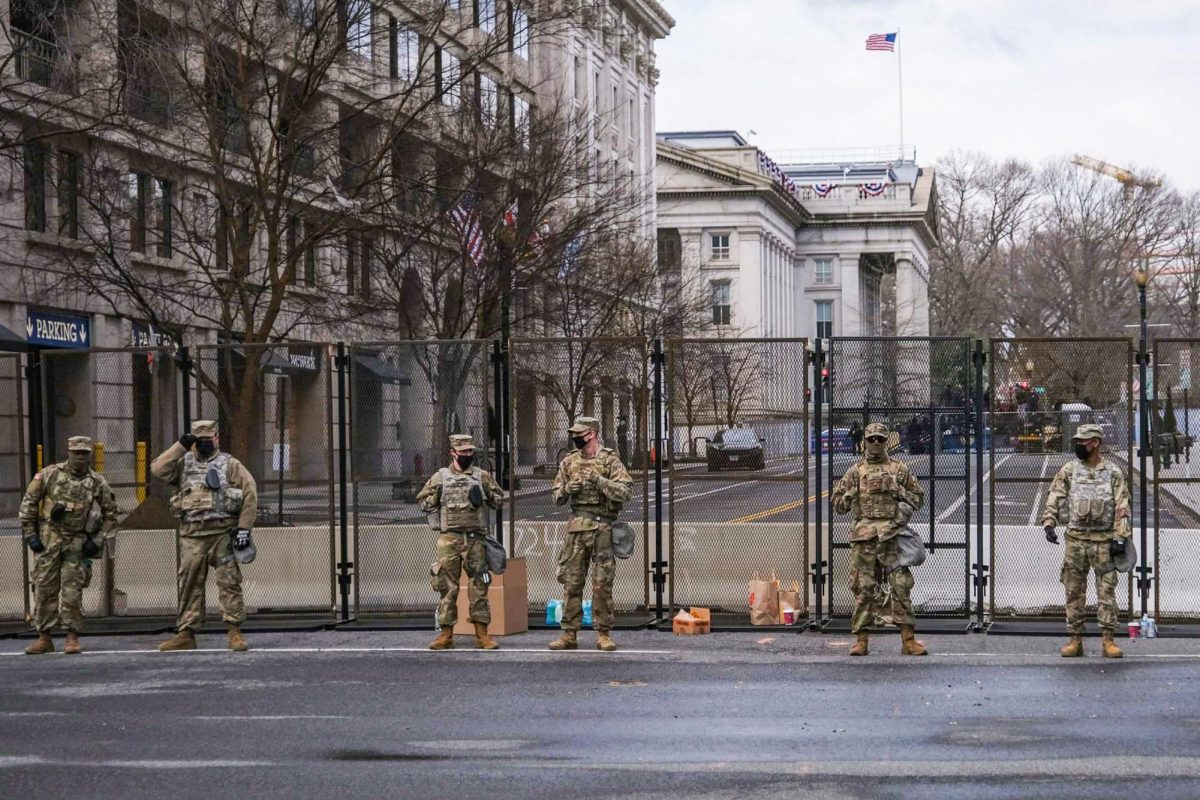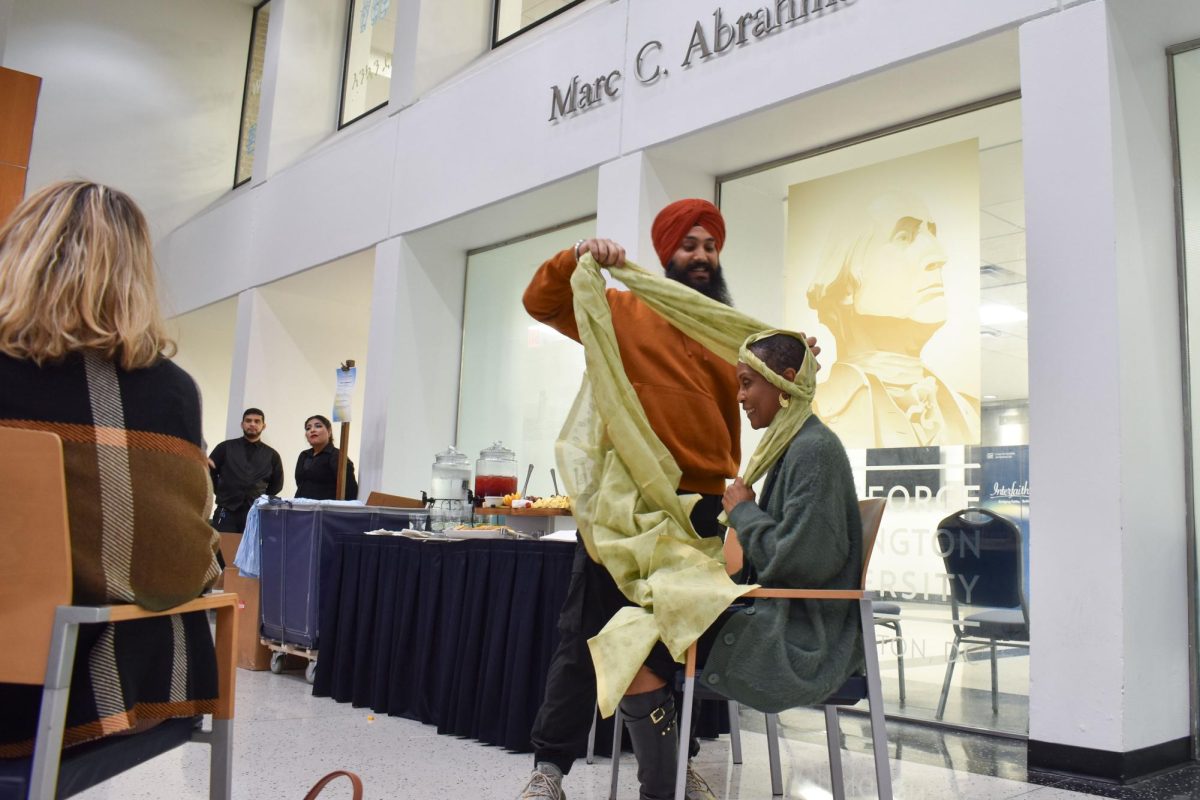An international affairs professor will launch a mentorship and financial assistance workshop this summer for underrepresented political science students transitioning into graduate programs.
Laila Sorurbakhsh, an assistant professor of international affairs and the principal investigator of the workshop, said the Breaking Barriers to Entry Project will provide financial, academic and psychological support to 14 “nontraditional” mid-career or first-generation students from around the country after receiving more than $24,000 to fund the workshop. She said the project will provide assistance on graduate-level research that underrepresented students might not have received throughout their undergraduate years to prepare them for further education.
Sorurbakhsh said faculty mentors will guide program participants with graduate school applications, offer tips on how to be professional in graduate school and will continue to advise participants on graduate skills, like research, through their first semester of graduate school. She said the workshop will teach graduate school-level writing and data analysis that isn’t taught in undergraduate programs so students can focus on class content instead of struggling with the logistics of each graduate school assignment.
“I want students to feel like they have a good working foundation of graduate-level skills as they start their academic careers so that they can have the confidence to hit the ground running,” Sorurbakhsh said in an email.
The American Political Science Association funded the grant that will cover all workshop expenses, which include a laptop and textbooks for program participants. Sorurbakhsh – who is running the workshop with David Branham, the co-principal investigator and professor at the University of Houston-Downtown – said the workshop is free for participants and will waive application fees for graduate programs at the Elliott School of International Affairs and the University of Houston-Downtown’s master of nonprofit management program.
The application process started earlier this month and will continue through the end of May. Applicants will receive an admission decision at the start of June, and the workshop will take place throughout four, four-hour sessions during the summer.
Sorurbakhsh said she is launching a resource page unaffiliated with the workshop this summer for all of her incoming graduate students at GW with videos on writing literature reviews and reading scholarly articles to prepare students for graduate school before the semester begins.
Sorurbakhsh said graduate students, not just in political science, struggle with the transition from an undergraduate program to graduate program because they have varying discipline focuses, and her program will concentrate on political science because it is applicable in multiple disciplines like international affairs, public administration and public policy.
“It’s extremely hard to navigate without prior mentorship,” Sorurbakhsh said.
Experts in political science said workshops for graduate program entry could fill a gap in undergraduate programs that didn’t provide specific guidance on graduate school applications and research for diverse groups like BIPOC students. They said graduate program entry workshops for nontraditional students can provide professional connections and research opportunities that they might not have access to because of a historical lack of diversity and inclusion in graduate political science programs.
Joseph Roberts, a professor of politics and international relations at Roger Williams University, said nontraditional students like first-generation students need additional mentorship because the resources that prepare students for graduate schools like advice on standardized testing or personal statements from faculty are not always guaranteed in undergraduate programs.
“First-gen students often don’t know what questions to ask about graduate school, and so I think they’re not getting good mentoring by faculty,” Roberts said.
Roberts said diversity has increased in the political science field since he was a graduate student, and workshops like Breaking Barriers to Entry can “accelerate” the increase in diverse students. He said faculty should be “champions” for first-generation students and guide them to choose the best graduate program based on their interests and financial aid because they don’t have access to guidance at home.
“There are lots of ways to make a career with a science degree that doesn’t necessarily require graduate school but at the same time we want to diversify the discipline,” Roberts said.
Roberts said political science graduate program entry workshops could reach more students if they used their funds to build a wider undergraduate student recruitment search instead of spending funds on technological resources like laptops.
“We’re going to need more first-gen and BIPOC students who go to graduate school,” Roberts said.
Ray Block, an associate professor of political science and African American studies at Pennsylvania State University, said students of color in political science doctorate programs may struggle to obtain a degree because they do not have sufficient academic support from officials. He said students of color have trouble finding shared research interests with faculty on topics like the study of marginalized communities because they may only have access to predominantly white faculty who may not be interested in studying diversity.
Full-time underrepresented minority faculty at GW decreased by 10 percent between 2019 and 2021 with only about 120 full-time underrepresented minority faculty employed at GW.
Block added that job opportunities for political science students with a masters degree are limited because they would also need additional education in data science to perform analysis for jobs in the government or nonprofit organizations.
“Representation is a necessary first step, but it’s not a sufficient solution,” Block said.
Block said as an undergraduate he was involved in the Ralph Bunche Summer Institute, a research program that taught political science analysis and writing skills to fill his graduate school applications with more experience, which proved valuable over his career. He said while many graduate school entry programs provide resources and encouragement, the institute also allowed him to take graduate-level courses as an undergraduate and provided affiliations to “powerful” faculty members that increased his visibility to graduate programs.
Block said many students do not know how to secure internships or cannot afford to accept those that are unpaid. He said the lack of internships creates inaccessibility to the political science field, and graduate programs should make their application process more affordable to increase accessibility.
“It just takes you being well positioned and sort of privileged to know how to do well,” Block said.


